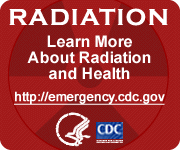
Photo courtesy US Navy: An upended house among debris in Ofunato, Iwate Prefecture in Japan on March 15, 2011.
On March 11, CDC immediately activated its Emergency Operations Center (EOC) in Atlanta to respond to the 9.0 magnitude earthquake and subsequent tsunami and radiation release in Japan. CDC continues to closely monitor the effects of this disaster and is focused on making sure it is ready to support any requests that come in from Japanese colleagues related to public health.
CDC Incident Management System (IMS) staff is actively participating in National and Regional coordination meetings and is prepared to respond to State and Territory requests for assistance and Mission Assignments from the Department of Homeland Security (DHS) and the Department of Health and Human Services (HHS).
Be sure to keep an eye on Public Health Matters for future blog updates on the disaster in Japan.
What You Need to Know about the Disaster in Japan:

- Health Effects
- Food & Water Safety
- General Info: Diseases and Health Concerns
- Frequently Asked Questions (NOAA)
- Basic Info (EPA)
Related Links:


Public Comments
Comments listed below are posted by individuals not associated with CDC, unless otherwise stated. These comments do not represent the official views of CDC, and CDC does not guarantee that any information posted by individuals on this blog is correct, and disclaims any liability for any loss or damage resulting from reliance on any such information. Read more about our comment policy ».
March 30, 2011 at 6:38 am ET - Creative Web Design
It’s really sad and my heart goes out to all those affected.
Creative web design in london
Link to this comment
March 30, 2011 at 12:05 pm ET - Susan
You might want to remove the word “exciting” from the very top of this page, where it says, “The exciting work of preparing and responding to public health events.”
It’s not exciting to the victims of tragedies or emergencies and might unintentionally give the wrong message. Thank you.
Link to this comment
April 3, 2011 at 6:56 pm ET - 35 mariner
I could hardly work on that day, and spend the rest of my time asking for prayers and support, I was in contact with a friend in Japan that time and I could hear her cry, but thanks GOD the US army have rescued her and her daughter
Link to this comment
April 4, 2011 at 11:25 pm ET - Bill Barton Greenfoot
They should consider the use of waste Egg Shells to help moderate the 15,000 tons of contaminated nuclear waste water they are considering to discharge into the Pacific ocean. The composition of the egg shell makes a perfect trace metals sink that will attract the nuclear particles that will otherwise make its way into the world’s ECOsystem. Japan & China both have an abundance of egg shell wastes that could be quickly accessed!
Link to this comment
April 9, 2011 at 8:01 pm ET - Aloha Social Media Management
Thanks for your help in both Japan and here at home in Hawaii. We appreciate it here on the Big Island. I’m sure our Japan visitors and friends do as well.
Link to this comment
May 26, 2011 at 3:47 pm ET - Rock
I would like to know what the true radiation levels are. The CDC says “low” but what is the actual level?
Releasing the radiated water into the Pacific would create more long term ecological problems in addition to the BP oil spill in which we are still seeing effects of in marine life. They need to think of a long term solution not a quick fix and wait and see. Peoples lives, and animals and plant life; some of our food sources is at stake. Lets contain the disaster not make it larger.
Link to this comment
June 9, 2011 at 8:05 am ET - Cydni
It’s very sad to hear of what happened. Some people will tend to think that, just because they don’t live in the immediate danger areas that this could not happen to them. The earth has it’s way of doing things whether we like it or not. However, I hope that the responses from the US, as well as other surrounding countries, can be of great assistance to the people of Japan. Although, I am only one of millions who support the efforts to assist, I am very proud that I can. I am very appreciative of the University that I go to as well because they have made us aware of ways that we, as nurses, can be of great assistance.
Link to this comment
August 19, 2011 at 6:39 am ET - Mark
Nice article, would be nice to have an update
Link to this comment
December 15, 2011 at 1:21 am ET - Krakow
Outstandingly drafted article, if all blog writers supplied a similar posts just like you, websites would have been a more suitable place.
Link to this comment
April 27, 2012 at 2:29 pm ET - Takashi Hoshizaki
With the Fukushima earthquake artifacts drifting into Alaskan waters, I wonder what the radiation levels are in the various fishes being harvested.
Link to this comment